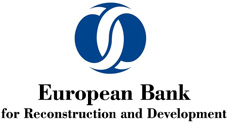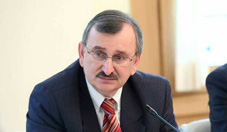
EBRD forecasts Georgia’s economic growth to 3.4 %
By Tatia Megeneishvili
Friday, May 13
Economic growth in Georgia is expected to improve by 3.4 % in 2016, compared with 2.8% in 2015. The forecast was made by the European Bank for Reconstruction and Development (EBRD).
“While the external environment remains challenging, with remittances and exports negatively affected by recession in Russia and a sharp slowdown in regional trading partners, the country is likely to enjoy a strong tourism season helped by constraints on other tourism destinations, such as Turkey and increased investor confidence supported by the business-friendly policies of the government and the National Bank of Georgia (NBG),” reads the EBRD’s report.
According to the EBRD, trust in the Georgian national currency and in Central Bank policies is also increasing.
“This factor can also be expected to reduce dollarization in the economy, which currently stands at 68% on the deposit side and 66% on the loan side. Following a 21% decline of the Lari in 2015, which given the high level of dollarization is increasingly affecting non-performing loans (NPLs), the current account deficit can be expected to stabilize and dollarization to start gradually declining in 2016,” reads the report.
According to the EBRD, this will reduce downward pressure on the Lari.
“In 2017, growth is expected to increase further to 3,9%, supported by an increasing impact of the Deep and Comprehensive Free Trade Area (DCFTA) implementation and increased competitiveness, as well as strong domestic and foreign direct investment in infrastructure and other sectors,” notes the report.
According to the former Director of the NBG Roman Gotsiridze, the EBRD’s report is positive; however, Georgian needs higher economic growth.
“Of course the fact itself is positive, but Georgian needs at least 6% - 8% economic growth,” stated Gotsiridze.
Economist Akaki Tsomaia stated that 3% economic growth is possible.
“If all the declared projects will be fulfilled and Georgia will be able to attract more investments, 3% growth is quite possible, because economic growth depends on investments,” stated Tsomaia.
The EBRD report notes that the possible economic growth in Georgia, Armenia and Ukraine will positively affect Azerbaijan and Beloruss.
The report also notes Russia’s impact on region.
“The impact of Russia as well as low commodity prices will continue to weigh on growth in Central Asia where growth forecasts have been mostly cut back. The countries with the strongest economic links to Russia are being particularly negatively affected,” reads the report.


